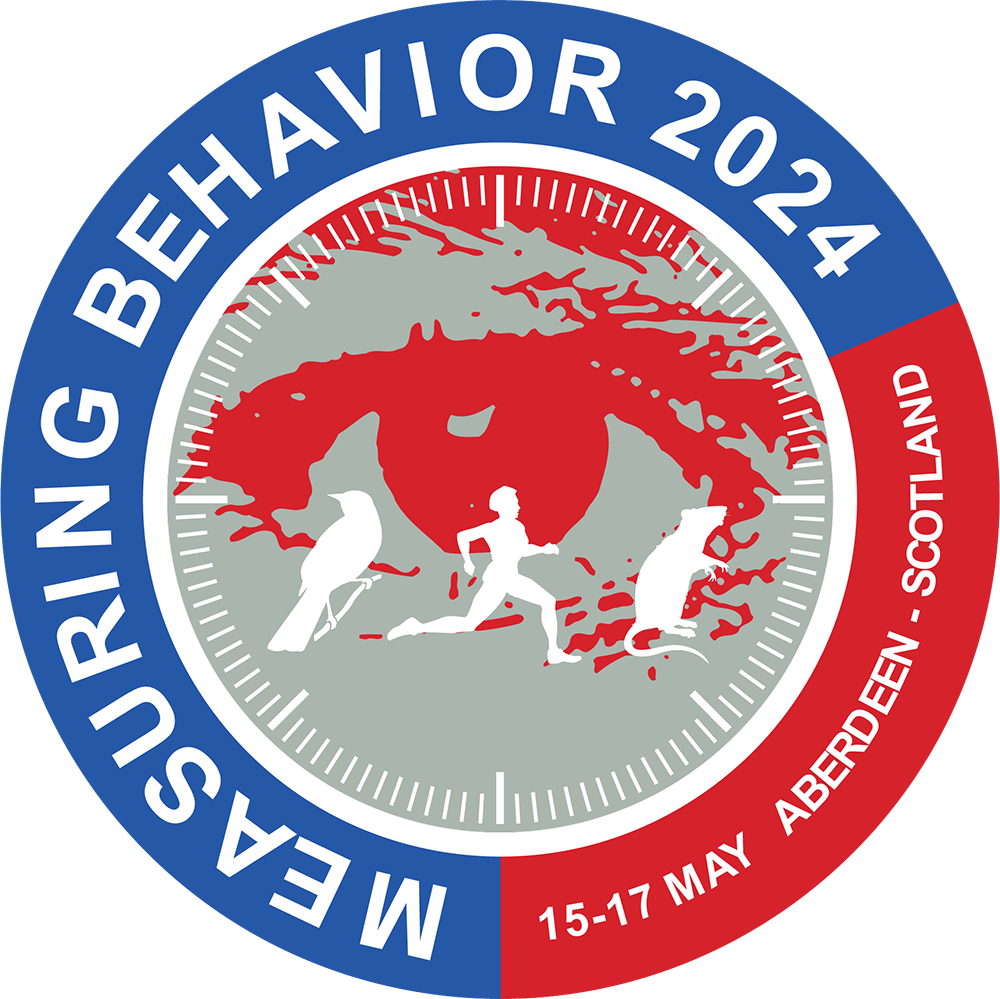Organisation - Measuring Behavior
Measuring Behavior 2024 is the thirteenth in the conference series. The series started as a small local workshop, grew to be a national event and is now an international conference of a high standard. As with previous editions, it is organised by local hosts together with the program chair from Noldus.
Program committee
The program committee is chaired by Andrew Spink (Noldus Information Technology). Gernot Riedel (Professor in the Institute of Medical Sciences at the University of Abderdeen) chairs the animal behavior methods track and Khiet Truong (Associate Professor in technology for spoken interaction, voice analytics, conversational agents at the Human Media Interaction department of the University of Twente chairs the human behavor methods track. They are supported by staff from the CPD services department of the University of Aberdeen.

Noldus Information Technology was one of the founders of the Measuring Behavior conference series back in 1996. The main role of Noldus is to ensure continuity between the meetings and in that role Andrew Spink chairs the program committee. Although Noldus helps organise the meeting, its competitors are welcome to exhibit and present there (and many of them do). Noldus is an innovative SME, creating solutions for researchers measuring the behavior of people and animals.
The University of Aberdeen was founded in 1495 and has a long tradition of outstanding behavioral research.

Building bridges
Measuring Behavior is the premier interdisciplinary event for scientists and practitioners concerned with the study of human or animal behavior. This unique conference focuses on methods, techniques, and tools in behavioral research in the widest sense. While most conferences focus on a specific scientific area, this conference tries to create bridges between disciplines by bringing together people who may otherwise be unlikely to meet each other.

At a Measuring Behavior meeting, you will find yourself among researchers from all fields of behavioral research: behavioral ecologists or neuroscientists, ethologists, developmental psychologists, ergonomists, human factors researchers, movement scientists, psychiatrists, psychophysiologists, toxicologists, usability testers, and others. While the research questions and applications may be highly diverse, what all delegates share is an interest in methods, techniques and tools for the study of behavior.